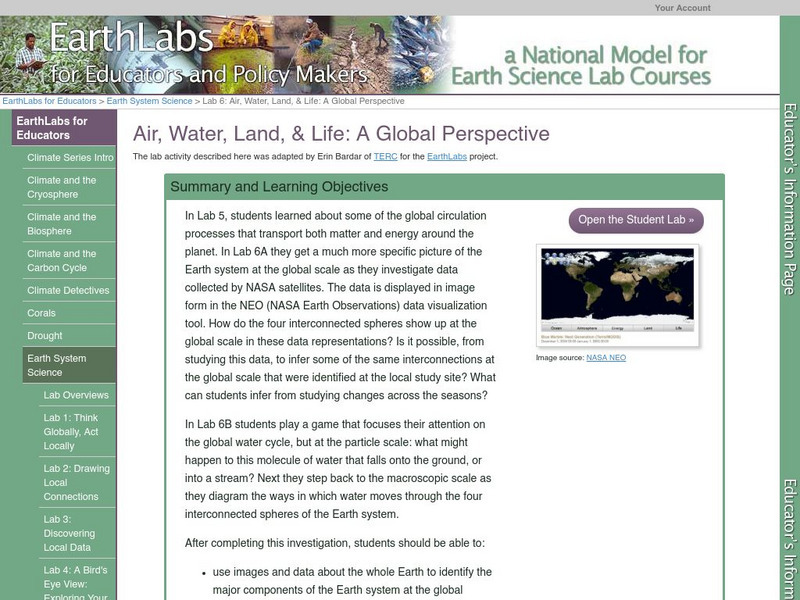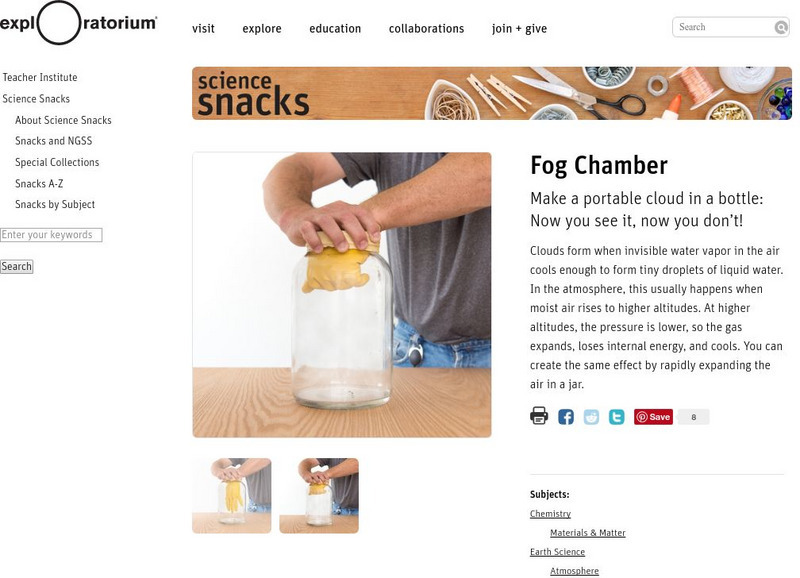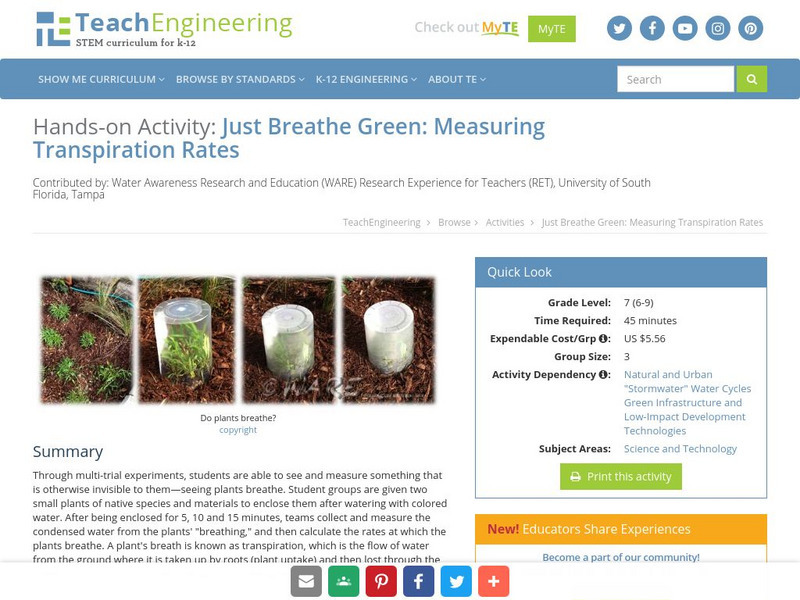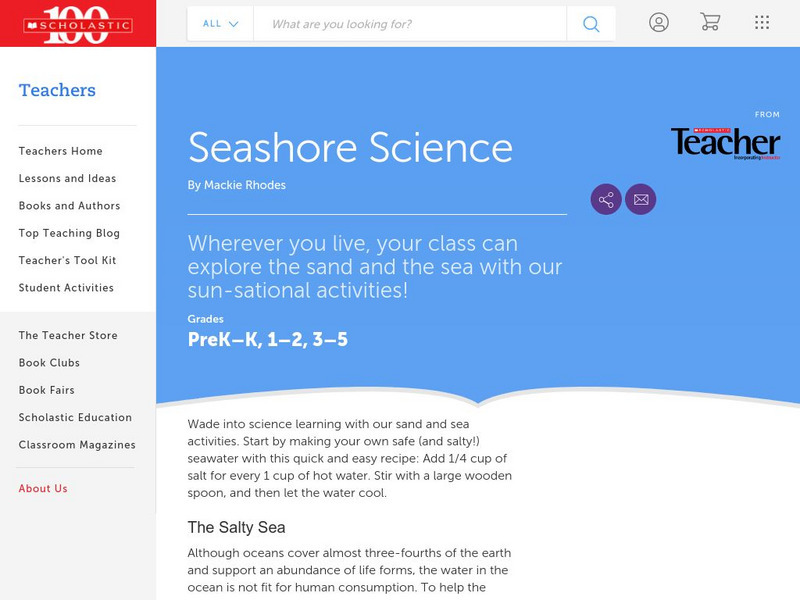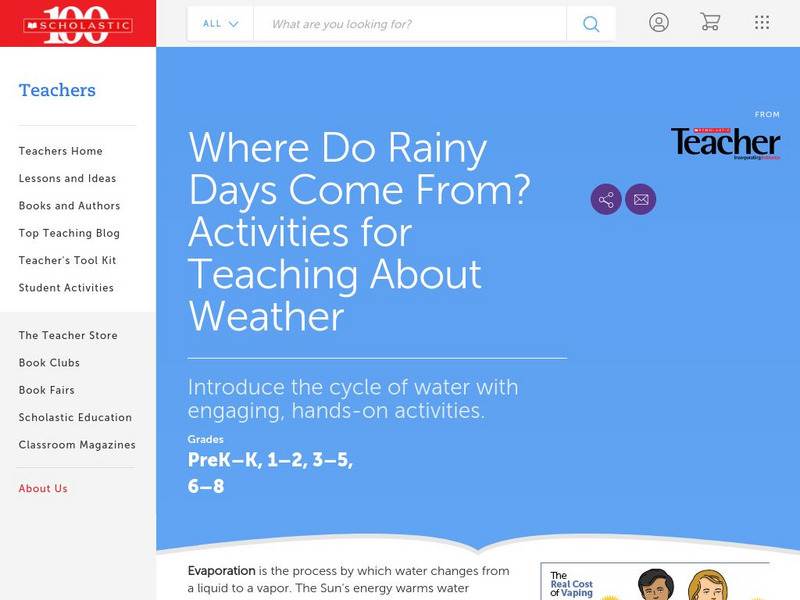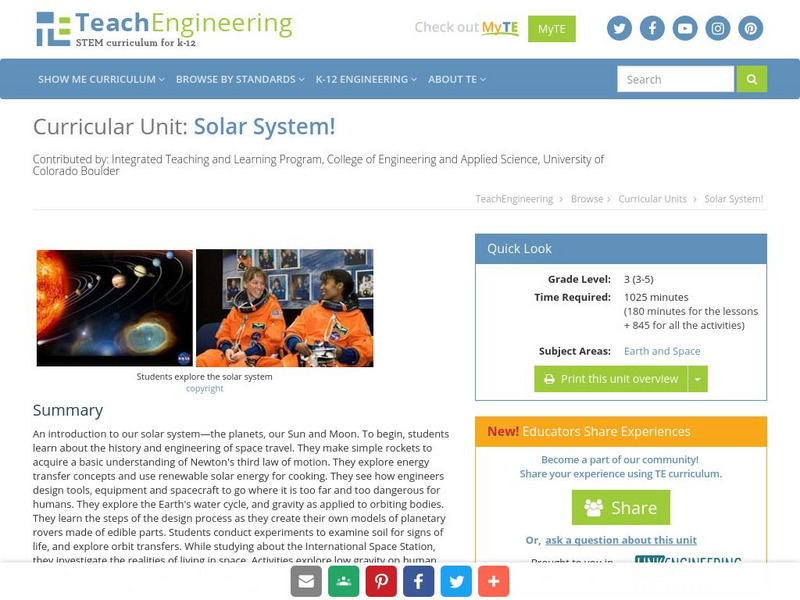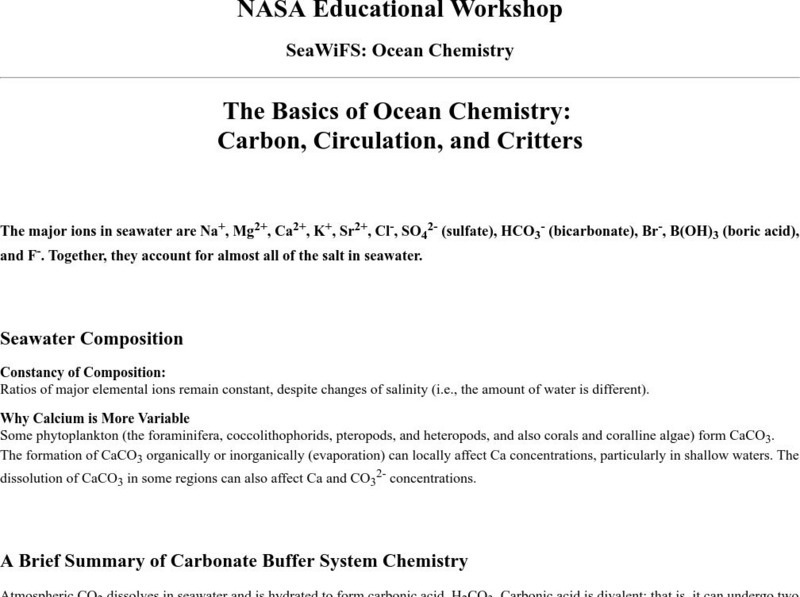Utah State Office of Education
Utah Science: Where's the Water?
Discover the ins and outs of the water cycle through this collection of experiments and activities.
National Association of Geoscience Teachers
Nagt: Demonstrating Climate Change and the Water Cycle
Demonstration of the greenhouse effect and its role in climate change, discussion of the phases of water and the water cycle, and a hands-on experiment to investigate the role of temperature in phase changes of water.
Alabama Learning Exchange
Alex: The Water Cycle
This is a hands applied lesson plan to help students experience the water cycle on a smaller scale. Because of the hands-on nature of the lesson plan, it works well to help students with a language barrier understand complicated vocabulary.
Other
Njawwa: Kids' Water Zone
Students can learn fun facts about water, perform experiments with it, and play games about it. Includes links and a suggested reading list.
American Geosciences Institute
American Geosciences Institute: Earth Science Week: Earth's Hydrologic Cycle
In this experiment, students create a model of the water cycle and learn about its crucial role in moving water around the Earth.
ArtsNow
Arts Now Learning: Be One With the Water [Pdf]
Fourth graders will explore states of matter and the water cycle by bringing water to life with their bodies. By enacting the changes that water molecules experience, 4th graders will learn scientific information kinesthetically.
US Environmental Protection Agency
Epa: Thirstin's Water Cycle Activity [Pdf]
This resource presents a simple set of instructions for building a model of the water cycle in a lidded jar.
Science Education Resource Center at Carleton College
Serc: Lab 6: Air, Water, Land, & Life: A Global Perspective
An investigation that is part of a series of lab lessons that expose students to Earth Systems through research, data, and visualizations. In this lab, students will follow the pathway of water on a big scale and a small scale down to...
Other
Easy Science Experiments: Clouds in a Bottle
How does a cloud form? This resource demonstrates how to create a cloud in a bottle. This makes a great experiment for a science fair project.
Exploratorium
Exploratorium: Science Snacks: Fog Chamber
Create a fog chamber by rapidly expanding air in a jar in this activity. This activity uses a match in a jar to bunch water into tiny droplets.
American Chemical Society
Middle School Chemistry: Changing State: Evaporation
Students build a model of a water molecule and design an experiment to see if adding energy affects the rate of evaporation.
NASA
Nasa: Oceanography
Join NASA in its study of oceanography and learn about the Earth system, the physical ocean, and life in the ocean. Try out the Giovanni: Earth Data Visualization Tool and access satellite-derived data to enhance the learning experience.
TeachEngineering
Teach Engineering: Making "Magic" Sidewalks of Pervious Pavement
Students use everyday building materials- sand, pea gravel, cement and water- to create and test pervious pavement. Groups are challenged to create their own pervious pavement mixes, experimenting with material ratios to evaluate how...
Other
Port Discovery Children's Museum: Stem at Home: How to Diy Cloud in a Bottle
Do you ever wonder what happens when a cloud gets too full? Find out in this easy and fun experiment.
TeachEngineering
Teach Engineering: Dams
Through eight lessons, students are introduced to many facets of dams, including their basic components, the common types (all designed to resist strong forces), their primary benefits (electricity generation, water supply, flood...
TeachEngineering
Teach Engineering: Just Breathe Green: Measuring Transpiration Rates
Through multi-trial experiments, students are able to see and measure something that is otherwise invisible to them- seeing plants transpire. This information will allow students to consider how a plant's unique characteristics (leaf...
Scholastic
Scholastic Instructor: Seashore Science
Come and learn with this incredible seashore science resource. The content includes fun facts, experiments, reproducible activities, resources and more.
Scholastic
Scholastic: Where Do Rainy Days Come From?
Find out more about rainy days when you check out this resource, which features hands-on interactive activities, experiments, fun facts, and more.
TeachEngineering
Teach Engineering: Solar System!
An introduction to our solar system: the planets, our Sun and our Moon. Students begin by learning the history and engineering of space travel. They make simple rockets to acquire a basic understanding Newton's third law of motion. They...
NASA
Nasa: The Basics of Ocean Chemistry: Carbon, Circulation, and Critters
An explanation of ocean chemistry, supported by illustrations, for example, of the global carbon cycle in the 1980s and the annual carbon dioxide flux. The concentration of nutrients in the ocean is discussed for its impact on marine...
Science Buddies
Science Buddies: Timing the Tides
Have you ever been to a tide pool during low tide? Some intertidal animals in the low tide zone are left in a tiny pool of water when the tides go out. Other intertidal animals that live in high tide zones may be left to dry out during...


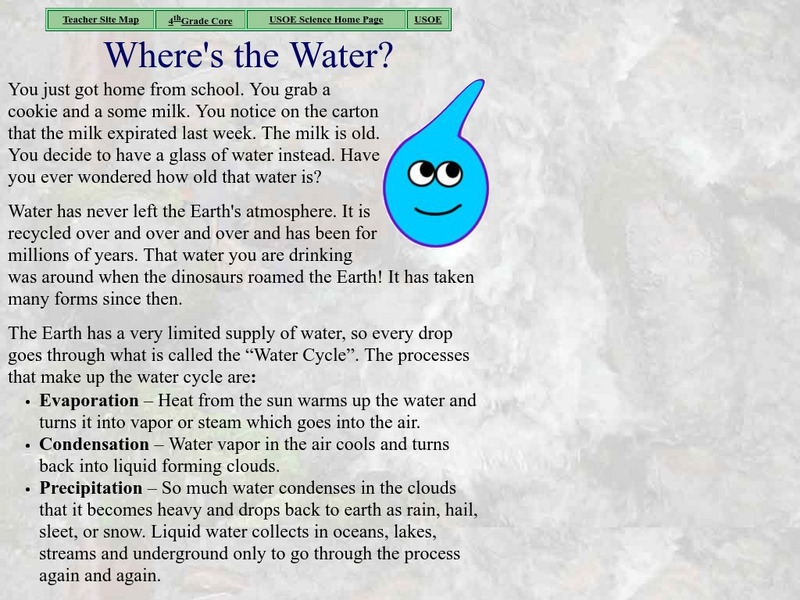




![Epa: Thirstin's Water Cycle Activity [Pdf] Activity Epa: Thirstin's Water Cycle Activity [Pdf] Activity](https://content.lessonplanet.com/knovation/original/42177-3463950814dbad483d30b2fc4d3e1b32.jpg?1661270397)
